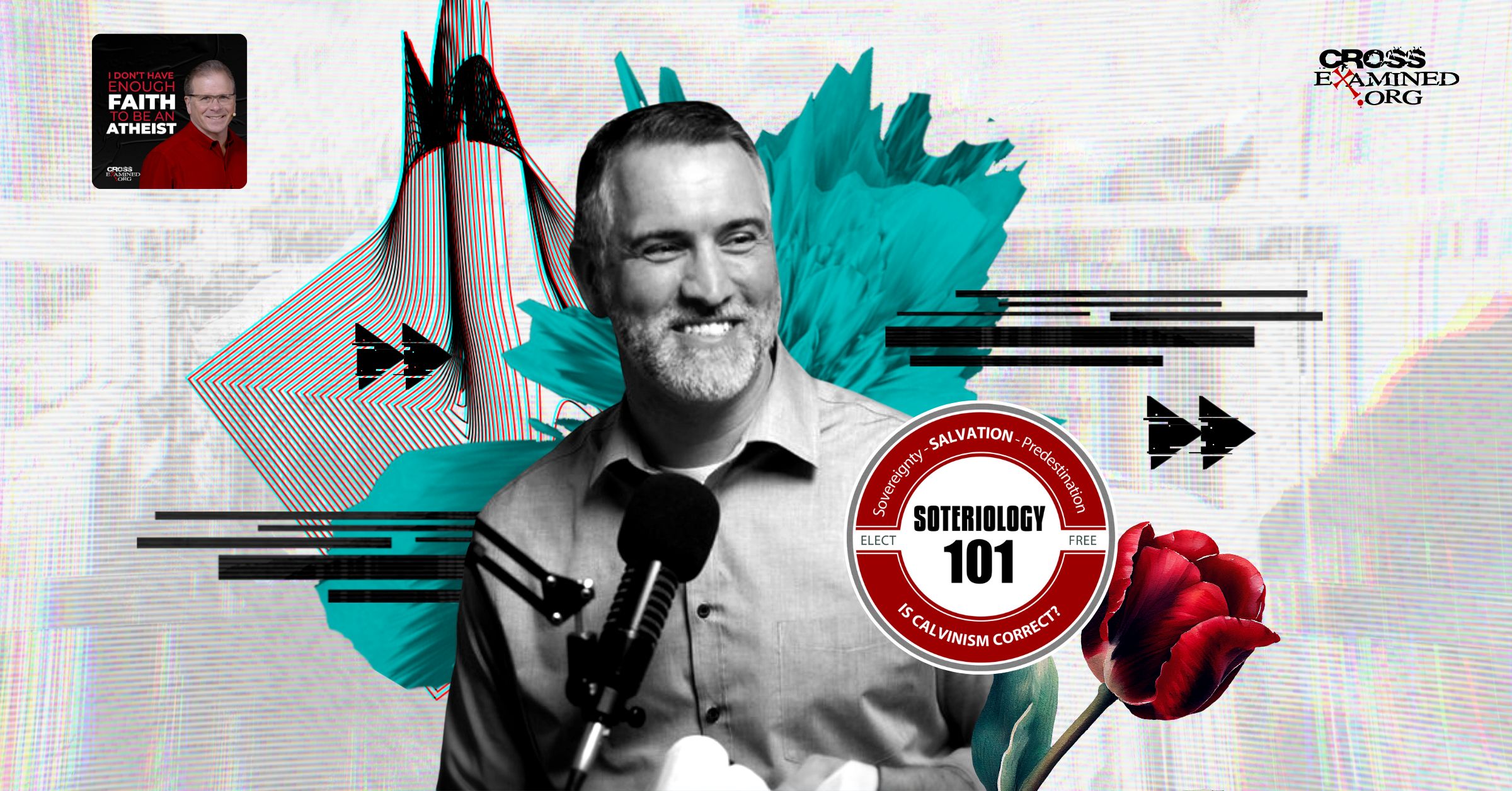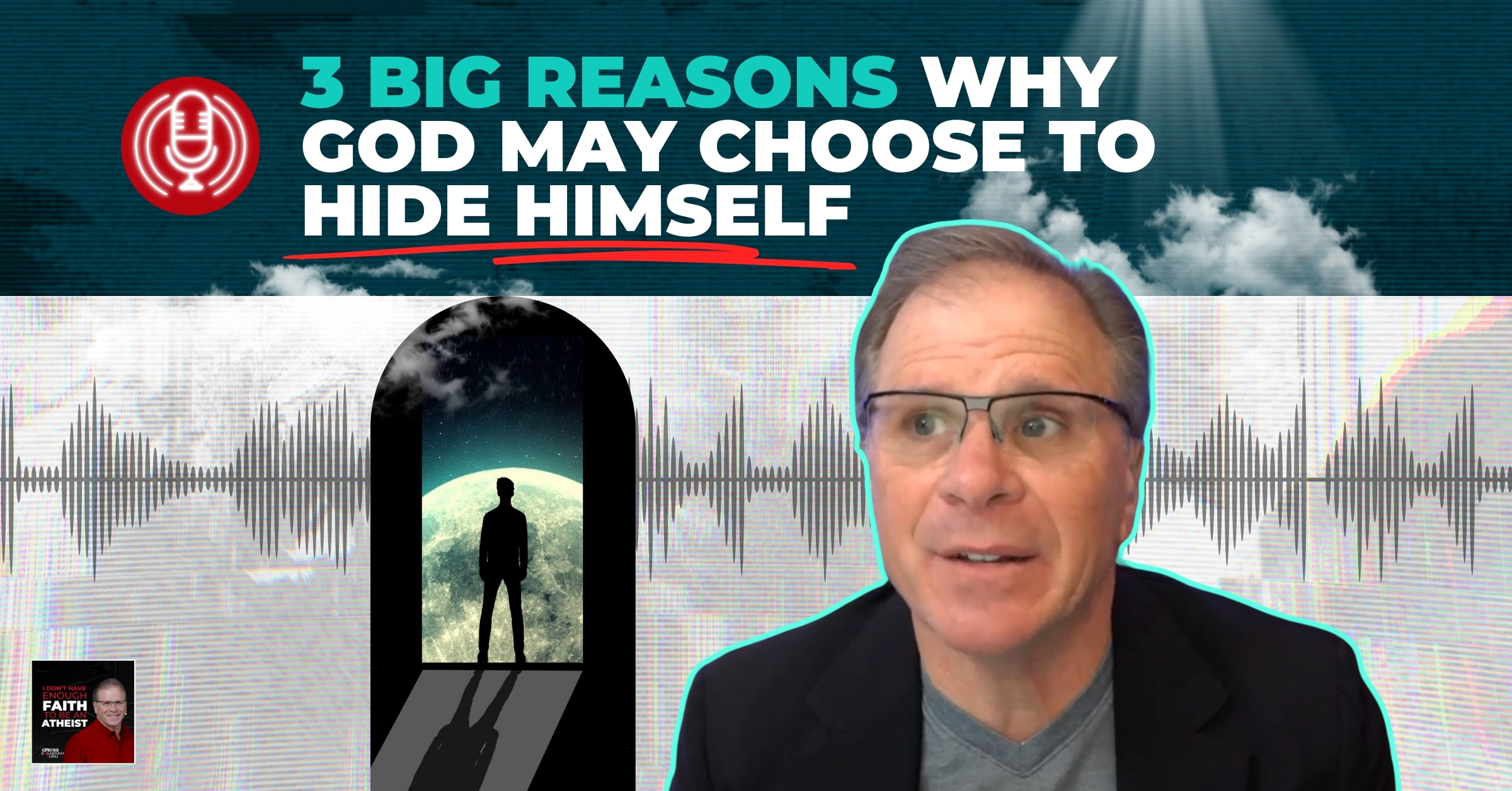10 Signs the Christian Authors You’re Following are (Subtly) Teaching Unbiblical Ideas
My friend, Alisa Childers, recently wrote a review of the bestselling book, Girl, Wash Your Face, by Rachel Hollis. It started a firestorm of online discussion about what makes someone a “Christian” author, what responsibility a self-identified Christian author has in promoting ideas consistent with biblical faith, and what harm there can be for Christians reading books that contain nonbiblical ideas.
I personally haven’t read the book, so I’m not going to comment on it specifically. But I will say I was extremely disappointed and saddened to see the kinds of comments supporters of the book wrote:
“It wasn’t meant to be a devotional.”
“She’s not teaching theology.”
“Our job is not to seek people out and hate them.”
“Stop competing! Just imagine what the non-Christians think about the McJudgies! We need to focus inward because the project within ourself is the most important work we will accomplish. Don’t use your blog to bring someone down.”
Unfortunately, such comments are representative of the lack of discernment common in the church today. If Alisa fairly characterized the claims of Hollis’s book, Hollis is promoting ideas that conflict with a biblical worldview. And when there is a concern that millions of women are consuming content from a Christian author that can lead them to embrace unbiblical ideas, we should be raising a warning flag and calling out for discernment in the body of Christ.
It’s not about being a “McJudgey.”
It’s about discerning biblical truth from non-truth…something the Bible consistently tells us to do.
While this post isn’t directly related to parenting (which I normally write about), it’s something that affects parenting. When parents readily incorporate popular but unbiblical ideas into their worldview, those ideas will affect how they raise their kids and the nature of the worldview they pass on.
The following are 10 signs that the Christian authors you’re following may be subtly teaching unbiblical ideas. I say “subtly” because I think most people would spot a problem immediately if a Christian said they didn’t believe in the Trinity. But it’s just as important to identify when less obvious warning signs—like the following—are present.
- They say, “I love Jesus but…”
It’s become popular for writers to trumpet that they love Jesus but (fill in the blank). When you see a sentence start this way, be prepared for one of two things to follow.
First, it may be something that the author knows is contrary to what Jesus would have approved of. For example, if you Google “I love Jesus but,” you’ll find a whole industry of shirts, mugs, and other things that say “I love Jesus, but I like to cuss.” Is this really something that glorifies the God you say you love? If you have to use “but” as a contrasting word between loving Jesus and making a statement about what you do and/or say, it’s probably not something to be proud of. When authors do this to be more likable to their audience, it’s often a sign that other unbiblical ideas will follow.
Second, it may be something that isn’t in contrast to loving Jesus at all, but the author wants you to think they’re different than the negative stereotype of Christians. For example, they’ll say something like, “I love Jesus, but I’ll never claim I have all the answers”… implying, of course, that Christians normally claim they have all the answers. Non-believers may think Christians feel this way because Christians believe Christianity is a matter of objective truth, but that doesn’t mean Christians claim to have all answers or that acceptance of objective truth is problematic.
- They make it a point to separate a relationship with Jesus from religion.
Unfortunately, the idea that Jesus somehow hates religion has become popular even amongst Christians who otherwise hold biblically solid beliefs. If Jesus truly hated religion, the popularity of this idea wouldn’t be an issue. The problem is that Jesus doesn’t hate religion. He hates false religion. Without writing an entire post on this (there’s a whole chapter in my next book about it), the bottom line is that there’s no need to separate Jesus from religion that is true. Christianity is simply the name for the religion whose set of beliefs center on who Jesus is and that calls us to know, worship, serve and obey Him. In other words, Christianity is a religion centered on a relationship.
When authors start writing negatively about “organized religion” in general, and place that in opposition to their own personal relationship with Jesus, it’s often because they are going to 1) challenge the idea of objective truth (thereby suggesting that uniform religious belief found in “organized religion” is bad) and/or 2) value their personal spiritual insights over God’s revelation to humankind through the Bible (personal experience becomes authority).
True religion glorifies God (James 1:27) and isn’t something Christians should denounce.
- There’s a lot of talk about authenticity and messiness.
Authenticity simply means honesty. At first blush, it doesn’t sound like that has anything to do with the Bible, and, if anything, it seems like it should go hand-in-hand with the Bible. However, in practice, authors who emphasize how “messy” their lives are and how “authentic” they are going to be with you about that messiness often use the opportunity to normalize sin.
As with several of these points, this is not always the case. Some authors who speak in these terms use it as an opportunity to point back to God. But I’ve seen it go the other way more often than not, so it makes the list.
- They promote the value of questions over the value of answers.
Another approach to “spirituality” that has become trendy is focusing more on raising questions about faith than sharing biblically sound answers. Authors who identify as progressive Christians sometimes go so far as to accuse other Christians of being afraid of questions and look skeptically upon anyone who attempts to answer the questions they raise.
Now, if you’ve read my blog for any amount of time (or my books, for that matter), you know that I’m all about raising tough faith questions with your kids…questions are extremely important. But questions also need to be addressed to the extent we can, given what the Bible tells us.
People who value questions more than answers are often uncomfortable with the idea of objective truth—that there is a truth independent of our personal experience. Everything Jesus taught assumed that there is truth independent of our personal experience and that He is that truth. If an author is uncomfortable with the idea of objective truth, they’re uncomfortable with Jesus.
- They confuse uncontroversial statements with moral positions.
One extremely popular author wrote on her Facebook page recently that she wanted to make it very clear where she stands on social issues. Getting “clear” on these things included making a completely uncontroversial statement for any Christian: she “cherishes the humanity of the LGBT community.”
All Christians should cherish the humanity of every community because we are all made in the image of God.
That’s never been a question.
But, of course, she said this implying that anyone who holds to a biblical view of marriage somehow does not cherish the humanity of the LGBT community. It’s a very misleading move to make a statement that no Christian should disagree with in order to suggest it’s something that those who take a different position than the author on a moral issue would disagree with.
- They focus almost entirely on Christian action to the exclusion of belief.
Someone recently told me that people in his denomination don’t value apologetics (why there’s good reason to believe Christianity is true) because their apologetics are in their actions. This attitude, effectively, is what you see with many popular Christian authors today, even when they say nothing about apologetics specifically. For them, Christianity is all about what you do in the world; it’s no longer about believing in Jesus as Lord and coming to a saving knowledge of Him. This kind of Christianity is hardly different than secular humanism. It just comes with a fond but relatively mild appreciation for Jesus on top…like a candied cherry on a sundae of good works that can easily be removed.
The Bible is clear that belief matters…in an eternally significant way. For more on this, see my post, Is How We Live More Important Than What We Believe?
- They use the word “faith” to mean some kind of unbounded belief system about God.
One bestselling Christian author shared the following quote on social media recently: “Faith is not a belief. Faith is what is left when your beliefs have all been blown to hell.” This, sadly, was met with thousands of likes, loves, and shares. It’s also a biblically inaccurate definition of faith.
The Bible does not present faith as blind belief or as believing in spite of evidence. The Bible repeatedly shows that faith is believing in what you have good reason to believe is true.
Biblical faith is not the broken pieces that remain when you’ve lost a bunch of other beliefs, as this quote suggests. Any time you see an author promoting an inaccurate idea of faith, it should be a warning flag. In this case, the author is well known for writing books about her struggles with the Bible. It’s not surprising at all that she would share such a quote.
- They regularly encourage you to “be true to yourself.”
If you frequently hear from an author that you need to be true to yourself, you can bet they’re on the shaky theological ground. As my 9-year-old daughter said when I asked if she thought people should be true to themselves, “You shouldn’t always be true to yourself, because if you want to be a murderer that would be really wrong.” #basiclogic
Simply put, this kind of “pull yourself up by the bootstraps” secular wisdom is just that…secular. It’s not very inspirational to be more true to yourself. As Christians, we should be inspired to be less like our sinful nature and more like Jesus.
- They treat judging others as the ultimate sin.
For many people today, the ultimate sin is judging another. Jesus doesn’t tell us not to judge…He tells us not to hypocritically judge and to judge with right judgment (e.g., John 7:24). Friends, we have to be discerning! Discerning between truth and non-truth doesn’t mean you are spiritually condemning a person, as people so often believe. Only God knows the human heart, and we are surely not called to determine whether someone else is saved. But we sure can and should address what the Bible says about right belief and right action. If you’re following someone who says things like, “Don’t stick around if want to judge others!” “Our job isn’t to judge, it’s to love!” or “This is a judgment-free zone!” steer clear. It likely means something very different than you think.
- They make claims about what it means to love others without addressing what it means to love God.
When we follow the greatest commandment—to love God—it informs what it means to follow the second commandment—to love others. It’s not up to us to define the word. There are many authors (who identify themselves as Christians) today who champion unbiblical ideas of what it means to love others, and it’s rooted in ignorance of the commandment to first love God. I saw one such author this week say that Christians are unloving for being opposed to abortion, for example. But when we first love God and understand that we are made in His image and every human, therefore, has extraordinary value, we simply can’t conclude that loving others means allowing them to take the life of another human, no matter the circumstance.
Be vigilant. Test everything. And hold fast to what is good and true.
Natasha Crain runs her Christian apologetics blog for parents, ChristianMomThoughts.com. She obtained her MBA in Marketing and Statistics from UCLA and obtained a Christian apologetic certificate from the University of Biola. She currently resides in California with her husband Bryan along with her three young children.
Original Blog Source: http://bit.ly/2SiVcGq












Leave a Reply
Want to join the discussion?Feel free to contribute!